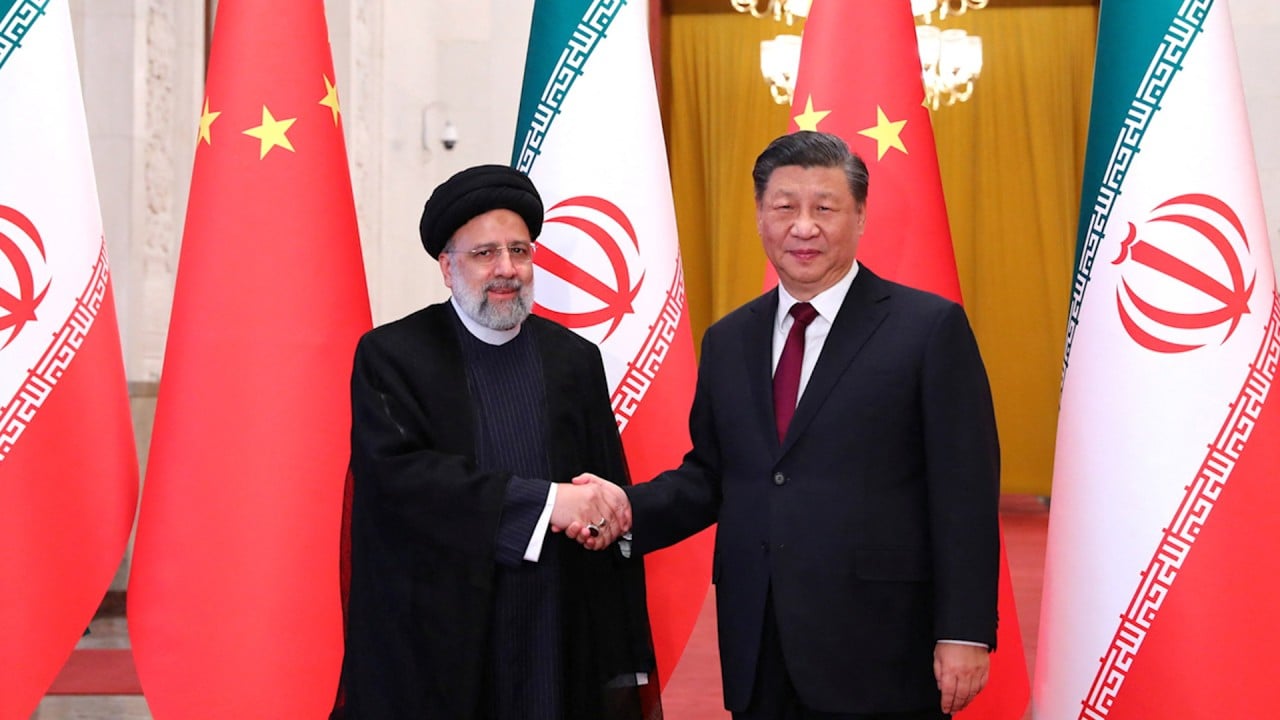
China, Iran, Pakistan agree to hold regular anti-terror talks as concerns grow over cross-border insurgency
- Decision comes after Chinese foreign ministry’s external security affairs chief holds first such meeting with Iranian and Pakistani counterparts in Beijing
- Move to ‘institutionalise’ the counterterror security consultation made under China’s Global Security Initiative, Chinese foreign ministry says
Bai also held separate one-on-one meetings with Abdul Hameed, director general of the Pakistani foreign ministry, as well as Seyed Rasoul Mosavi, assistant foreign minister and director general for South Asia at the Iranian foreign ministry.
Chinese assistant foreign minister Nong Rong also hosted a separate meeting with Hameed and Mosavi.
“[The three sides] decided to institutionalise the trilateral counterterrorism security consultation,” Chinese foreign ministry spokesman Wang Wenbin said, describing the consultation mechanism as part of China’s “Global Security Initiative” proposed in February.
“China resolutely opposes and strongly condemns all forms of terrorism, and is willing to stand with Pakistan and Iran for close cooperation to crack down on terrorist forces that threaten the three countries’ interests and regional security,” Wang told a regular press briefing on Thursday.
According to Li Wei, a researcher at the China Institutes of Contemporary International Relations in Beijing, the three-way dialogue has “very high significance” and will focus largely on preventing the spillover effects of Afghanistan-based militancy.
“The terrorist threats faced by the belt and road infrastructure constructions will also be a topic of discussion,” Li said.
China urges Pakistan, Afghanistan to help beat terror in first talks since 2021
“The Taliban taking office … has caused extremism to reactivate in Central South Asia, including Iran, as a new order is building up when the original regime is replaced by a new one,” said Yan Wei, a professor with China’s Northwest University.
As the impact of extremist forces is being felt across borders, there is a need for multilateral mechanisms to resolve risks, he said.
Taliban says raids net Isis members behind Kabul Chinese hotel attack
“The security of these nearby countries would definitely have an impact on us, especially as we are neighbours of Pakistan while Iran is our distant neighbour,” Yan said.
China has been building closer ties with both Iran and Pakistan in recent years, including signing a 25-year cooperation agreement with Iran and setting up the China-Pakistan Economic Corridor under the belt and road strategy.
“This [security dialogue mechanism] may be a first step to verify if there is appetite on each side for a more ambitious trilateral dialogue,” said Jean-Loup Samaan, senior research fellow at the National University of Singapore’s Middle East Institute.
China is also building on the momentum brought about by its role in facilitating an easing of tensions between Saudi Arabia and Iran earlier this year, and the new mechanism could add a new dimension to “Chinese ambitions to reshape the regional diplomatic environment”, Samaan said.
China has in recent months stepped up efforts to broker peace in a number of global hotspots, including the Middle East and Ukraine.
In March, it brought Saudi Arabia and Iran together in Beijing for a resumption of bilateral ties after seven years of hostility. China has also reached out to Ukraine and Russia to discuss a potential peace plan, despite admissions that an agreement between the two warring parties would be difficult.


